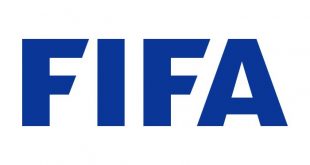 As FIFA looks back on the 12 months that have passed since the launch of President Gianni Infantino’s vision to make football truly global, the organisation has published a report analysing the level of competitiveness in every country around the world.
As FIFA looks back on the 12 months that have passed since the launch of President Gianni Infantino’s vision to make football truly global, the organisation has published a report analysing the level of competitiveness in every country around the world.
The 2020 Global Competitive Balance Report details the competition structures in each of FIFA’s 211 member associations (MAs), grouped by confederation, and gives a data-driven account of how domestic competitions have developed in recent years. This is reflected in two key indicators: the number of recent champions and the points differences in the final standings. The report also provides the foundation years of clubs and MAs to provide additional context.
Looking back to move forward
Introducing the report, President Infantino explains the rationale behind this unprecedented study. “Only by looking back can we know how to move forward, and this report provides a comprehensive overview of the recent history of domestic competitions across the globe, painting a picture of where competitiveness is thriving, on the right track or in need of stimulus.”
Looking back over the past 15 seasons, and not counting those truncated by the COVID-19 pandemic in 2020, 164 (78%) of FIFA’s 211 MAs have run their main competitions uninterrupted, season after season. Over the past five seasons, the figure is as high as 180 (85%). What this shows is that leagues and other regular-season competitions are well established and a fixture in organised sport almost everywhere in the world.
A cornerstone of global technical development
In conducting this analysis, FIFA has created a data set designed to be used as a basis by competition organisers to achieve a healthy competitive balance that encourages general technical development within each national football culture.
The objective of The Vision 2020-2023: Making Football Truly Global is to challenge the traditional football hegemony by providing every member association with the tools and support structures they need to achieve their full potential on the global stage.
“Making the sport global means raising the game in every corner of the planet so that there are at least 50 national teams and 50 clubs across the confederations with a genuine chance of becoming world champions. It’s what the sport needs and what the world wants to see.”
 Arunava about Football A look at football & the world through my eyes!
Arunava about Football A look at football & the world through my eyes!




